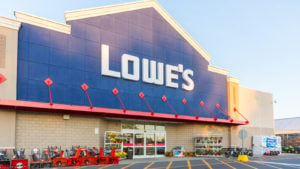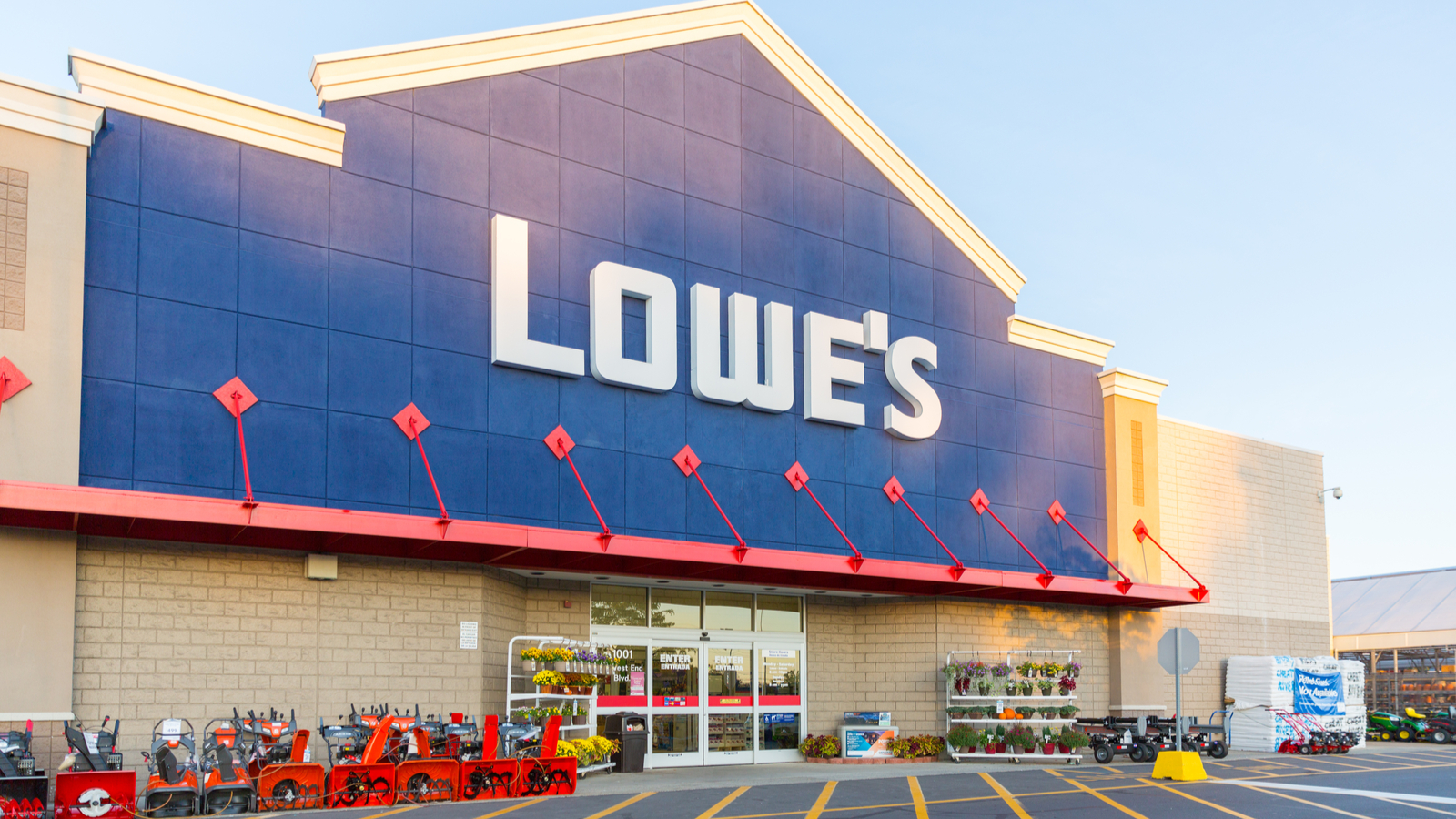Stock analysts like to panic during earnings season. It’s a rare time when they get more visibility into a company’s operations. Never was that more apparent than this week, when all the headlines screamed about how Lowe’s (NYSE:LOW) is suddenly hot and Home Depot (NYSE:HD) is suddenly not.

It’s true that Lowe’s beat earnings estimates and Home Depot didn’t. But the results, seen from a long-term perspective, are just a reversion to the mean. Both stocks opened Nov. 21 about 27% higher year-to-date.
Lowe’s said it earned $1 billion, or $1.36 per share, on revenue of $17.4 billion. This beat analyst estimates and sent the stock up 5% in a single day.
The Tell
Smart investors saw this coming early in the spring, after Lowe’s raised its dividend from 48 cents per share to 55 cents, a 15% hike. Back then the stock was trading under $100, making the new yield a respectable 2.2%. At its Nov. 21 price near $117, the yield is back down to 1.9%.
Home Depot, meanwhile, plunged after reporting net income of $2.8 billion, or $2.53 per share, on revenue of $27.2 billion. The fall brought the yield on its $1.36 per share dividend to 2.5%.
So while everyone this morning is screaming that you should buy Lowe’s and that Lowe’s digital ordering is now superior, income investors are doing better selling Lowe’s at a high and buying HD stock.
Same Store, Different Day
Lowe’s and Home Depot are very similar, in both layout and merchandise. In many towns the stores sit near each other. Home Depot seems to do a better job for contractors, with a separate entrance, while Lowe’s seems cleaner, more attuned to do-it-yourselfers. But these are superficial differences. Over time, performance at both seems to revert to a mean. Home Depot is about 50% bigger by sales volume.
LOW’s smaller size means improvements are reflected quickly in results. Numbers are smaller. It’s the same way in general retail, where improved results at Target (NYSE:TGT) generate a bigger percentage boost than the same sales gains at Walmart (NYSE:WMT).
From the investment standpoint, however, it’s potato, potahto. Both of these companies are scaled dividend aristocrats. You find their lows when the yields are highest, and if you want to get out you trade when their yields are lowest.
The Ellison Touch
Lowe’s CEO Marvin Ellison, who came to the company after failing at J. C. Penney (NYSE:JCP), understands this. He bought shares after the early spring fall, which was built on a March quarter that appeared light. Then he went back to his desk, making Lowe’s ever-more like Home Depot.
That reality is reflected in the third-quarter report, where Lowe’s announced it would close 34 Canadian outlets that operate under the name Rona. Lowe’s bought Rona in 2016, before Ellison arrived. Its stores had a variety of footprints, some as small as 85,000 square feet. It’s these “underperforming” stores that are quietly disappearing under the good earnings news.
The Bottom Line on Lowe’s Stock
Long-term income investors are doing well in both Lowe’s and Home Depot stock. Smart investors time their purchases and look at yield.
The dividend at Lowe’s has risen from 23 cents per share five years ago to its present 55 cents. Despite today’s low yield, it’s a good long-term holding. The dividend at Home Depot has risen from 47 cents to $1.36 in that time. It’s a slightly better long-term holding.
But with both these companies, you want to get in when the tide’s going out.
Dana Blankenhorn is a financial and technology journalist. He is the author of the historical mystery romance The Reluctant Detective Travels in Time available now at the Amazon Kindle store. Write him at danablankenhorn@gmail.com or follow him on Twitter at @danablankenhorn. As of this writing he owned no shares in companies mentioned in this story.
